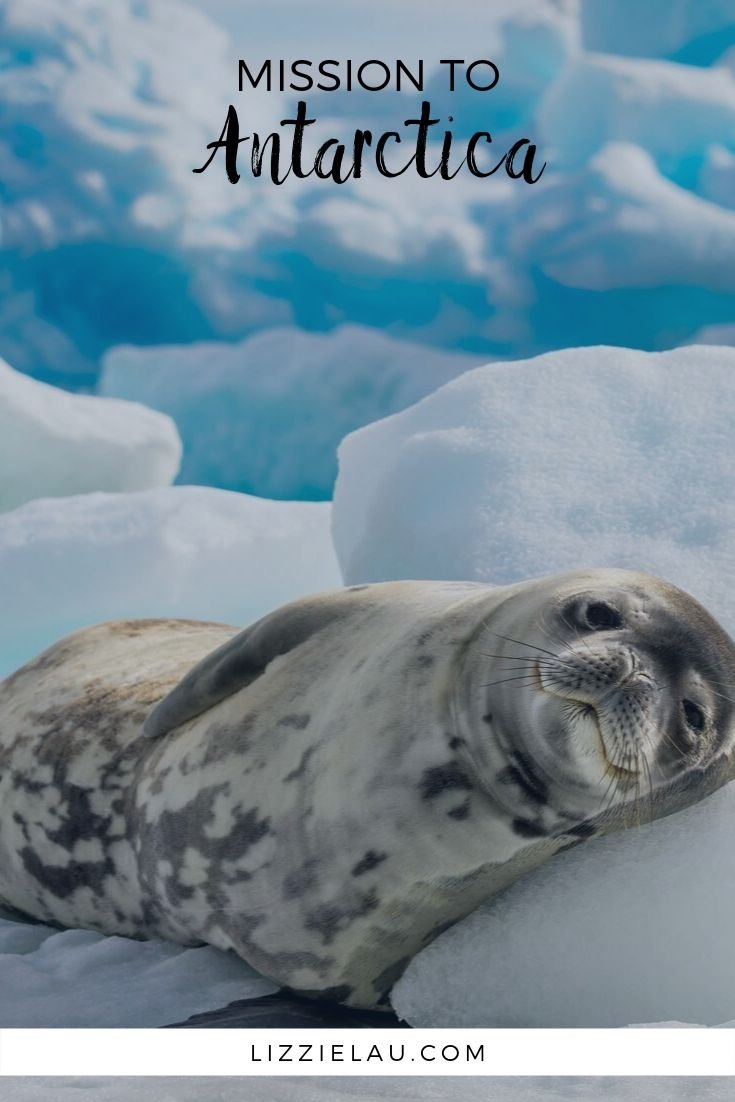Airbnb and Ocean Conservancy recently announced the Antarctic Sabbatical, an opportunity for five extraordinary individuals to travel to the planet’s most remote continent and join Scientist Kirstie Jones-Williams on a scientific research mission to Antarctica in December.

The five volunteers will be tasked with collecting snow samples and studying the extent to which microplastics have made their way to the interior of Antarctica.
The goal of the Antarctic Sabbatical is to spotlight our impact on the climate in one of the world’s least understood and most isolated ecosystems. By learning more about the impact of plastic pollution generated elsewhere in the world, the volunteers and scientists will bring back insights on how we can all help protect both Antarctica and the planet.
“Most people think of Antarctica as a pristine and isolated continent, but recent evidence shows that even the most remote locations are affected by plastic pollution. This expedition will help us understand the pathways of microplastics to remote regions such as Antarctica and comes at a critical time to highlight our responsibility to protect our natural world,” said Jones-Williams. “This expedition will be hard work, with scientific rigour required during unforgiving wintery conditions. We are looking for passionate individuals, with a sense of global citizenship, who are excited to be a part of the team and to return home and share our findings with the world.”
On the month-long mission to Antarctica, the citizen scientists will:
Attend an immersion training in Punta Arenas, Chile, where they will prepare themselves with courses on glaciology and field sampling as well as lab work and equipment practice.
Fly to Antarctica to begin their scientific mission, landing on a naturally formed blue-ice runway deep within the continent where the research will be conducted.
Collect snow samples from the interior of Antarctica and study them for foreign microfibers to determine how far waste and pollution has traveled across the world.
Visit the South Pole, where they can walk around the globe in just a few steps.
Get the chance to explore the beauty of Antarctic sites like the Drake Icefall, Charles Peak Windscoop, and Elephant’s Head to learn about the continent’s geography.
Return to Chile where they will continue to study their findings and work with Ocean Conservancy to become ambassadors for protecting the oceans. In this advocacy role, they will deliver insights on how the Airbnb community and others can help minimize their collective plastic footprint to support Ocean Conservancy’s mission.
Airbnb is committed to providing the option for sustainable travel to its community at every point of the trip. To further this commitment, Airbnb is working with Ocean Conservancy to use the research findings from the Antarctic Sabbatical to inform educational and advocacy efforts. Airbnb is also conducting an environmental impact assessment to measure and understand our impact and to identify what we can do to reduce our footprint over time. These are foundational steps that will inform future commitments and our vision to be a leader in sustainable travel.
“Partnering with Airbnb on the Antarctic Sabbatical is an incredible opportunity to continue our fight against ocean plastic and raise awareness of this issue,” said Janis Searles Jones, CEO of Ocean Conservancy. “Through our annual International Coastal Cleanup, where volunteers not only collect trash from beaches and waterways around the world but also log every item in our global database, Ocean Conservancy has a long history of working with citizen scientists, and we look forward to applying the results of this expedition to global solutions.”
The Airbnb community values healthy travel, including the 64 percent of guests surveyed who chose Airbnb in 2018 because they value that it is an environmentally sustainable travel option that makes the most of spare space in people’s homes.
“Together with Ocean Conservancy, we are highlighting the problem of microplastics to encourage a global audience to give great thought to the consequences of how we live and take collective action,” said Chris Lehane, Senior Vice President of Global Policy and Communications of Airbnb. “While Airbnb is inherently more eco-friendly than other forms of travel given that people are using spaces already built, we need to continue to find ways for the platform to contribute to reducing the impact of humans on the environment. There is far more we need to do and will be looking to do as we go forward.”
The Antarctic Sabbatical follows the Italian Sabbatical, which was an urban regeneration project by Airbnb and Wonder Grottole that offered the opportunity for five volunteers to spend three months living in the historic town of Grottole in southern Italy to help revitalize a community that was facing extinction. The Sabbatical program is designed to inspire people to take advantage of earned time off to give back to the people and places around them for a life-changing experience.
To apply for the Antarctic Sabbatical, visit airbnb.com/sabbatical and complete the application form, terms apply.***
***Before applying for the Mission to Antarctica, carefully read the selection terms available on the website. Candidates must be over 18, available to travel to Chile and Antarctica for a month from November to December 2019 to conduct volunteer work as citizen scientists and be able to speak conversational English. The final selection of five citizen scientists will be announced on October 30. The sabbatical is open to residents in the following countries and regions: Argentina, Austria, Australia, Belgium, Brazil, Canada, Chile, China, Denmark, Dubai, France, Germany, Ireland, India, Italy, Hong Kong, Japan, South Korea, Malaysia, Mexico, Netherlands, New Zealand, Norway, Portugal, Russia, Singapore, South Africa, Spain, Sweden, Switzerland, Taiwan, Thailand, UK, and US.
About Antarctic Scientist Kirstie Jones-Williams
Antarctic Scientist Kirstie Jones-Williams specializes in investigating the impact of microplastics on polar marine zooplankton. She is earning her PhD in Biological Sciences at the University of Exeter in the UK, funded by the NERC GW4+ DTP training program.
I’ve never been to Antarctica, but you can read about my motorcycle trip to Alaska here.

